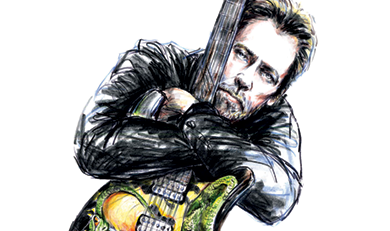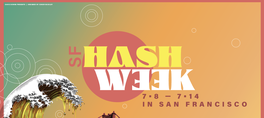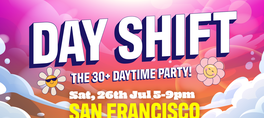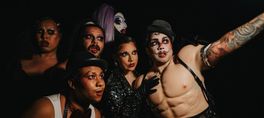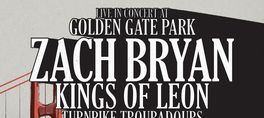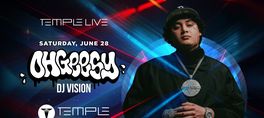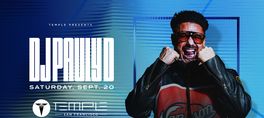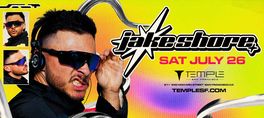Legendary guitar virtuoso Harvey Mandel, aka "The Snake," truly one of the most distinctive and innovative musicians, continues to perform throughout the world, captivating audiences with his inventive style of electric guitar playing.
A pioneer of modern electric blues from Chicago, Harvey Mandel developed and mastered sustained and controlled feedback, displaying both extroversion and musical virtuosity. He has performed with many blues legends including Howlin' Wolf, Muddy Waters, Otis Rush, Albert King, and Buddy Guy.
Born in Detroit, Michigan in 1945 and raised in Chicago, Harvey had a brief stint playing bongos before switching to guitar. He used little Fender amps at first, using different tricks, and eventually used an all-tube, low quality Bogan PA amplifier. It had the greatest natural sustain, according to Mandel. Mandel became the original guitarist with Charlie Musselwhite, releasing the debut album Stand Back! in 1966. Effortless sustain, multi–string bends, a slightly distorted tone always bordering on feedback and herky-jerky stuttering phrases balanced with long, melodic line—radical ideas the blues world had never seen tied into such a neat, well-executed package. And what made Harvey's unique vision all the more remarkable was that he not only progressed at a faster rate than his peers but accelerated past the guitar technology available at the time. "I never tried to copy," Harvey explains. "I learned from the blues players I was jamming with, as far as the technique and the notes, but I always had my own sound in my head. I mean, I heard the guitar the way you hear it today, and even the sound when Hendrix first came out, long before I could ever even dream of playing that stuff. I knew where guitar was going 20 years before it got there. I knew that eventually guitar technique would equal horn players and keyboard players: it was just a matter of training." As a result of heavy airplay in San Francisco, they were invited to play the Fillmore by the late great Bill Graham.
Harvey Mandel relocated to the Bay Area, performing often at a club called The Matrix, where local favorites like Jerry Garcia and Elvin Bishop would sit in and jam. He then met up with renowned producer Abe 'Voco' Kesh, releasing his first solo album for Phillips/Mercury Records titled, Cristo Redentor in 1968, which included his extra-terrestrial version of "Wade in the Water," still a classic to this day. Then the news arrived that Harvey Mandel had replaced Henry Vestine as lead guitarist of the legendary Californian R & B band Canned Heat, and it was clear that his talents had been noticed by more than just a few musicians. Harvey was in their dressing room at the Fillmore on the night that Henry Vestine quit the band. They asked guitarist Mike Bloomfield to join them for the first set, and Harvey to join them for the second set. Harvey's third gig with the band was the Woodstock Festival in 1969! Harvey remained with Canned Heat for over a year in their heyday with slide guitarist/vocalist Alan "Blind Owl" Wilson, and singer Bob "The Bear" Hite. Harvey's nickname, "The Snake," given to him years before by keyboardist Barry Goldberg in Chicago (attributed to his cracked leather jacket and snake-like guitar licks), fit perfectly in the Canned Heat line-up. After several tours and 3 albums, including Future Blues, he was recruited by British blues man John Mayall to be a member of the Bluesbreakers, recording the adventurous album, titled USA Union. The band featured Mandel with Canned Heat bass player Larry "The Mole" Taylor, and legendary violinist Don "Sugarcane" Harris. Mandel also appeared on another significant Mayall album, Back To The Roots, on which Eric Clapton and Mick Taylor also guested. He left thereafter in 1972 and teamed up with Sugarcane Harris, forming the band Pure Food and Drug Act. Other PFDA members included Randy Resnick on guitar, Victor Conte on bass, and Paul Lagos on drums. They released 1 album on Epic Records titled, Choice Cuts. He resumed his solo career, releasing several more albums for Janus Records in the 1970's including the classics, Baby Batter, The Snake, and Shangrenade, the ground-breaking record where Harvey employed 2-handed fretboard tapping. Mandel was one of the first rock guitarists to utilize this technique, years before Eddie Van Halen and Stanley Jordan came along.
One of Mandel's most significant session credits was his participation on Black and Blue, the 1976 LP from The Rolling Stones. His unique style is evident on the song "Hot Stuff." When Mick Taylor left the Stones at the end of 1974, Jagger & Co. auditioned for a replacement by cutting tracks with various guitarists, among them Mandel and the man who eventually got the job, Ronnie Wood. Harvey Mandel became an immortal legend because of his role as a "heavy friend" in rock's stratosphere!
Following his success with the Stones, he became a busy session player, with groups such as Love and The Ventures, and opened for Jeff Beck on his Canadian tour as a power trio with Jimmy Haslip, bassist for the Yellowjackets. He relocated to Chicago in the late 70's and continued to tour extensively as well as supporting groups such as Roxy Music. In 1980, Harvey Mandel relocated to Florida as a member of the house band at Ron Wood's Miami night club, "Woody's," with Rolling Stones saxman Bobby Keys.
It's impossible to weigh the depth of influence Harvey "The Snake" Mandel has had on guitar players since recording the classic Cristo Redentor album in 1968. Though he didn’t invent the now widely used tapping technique, he was the first to adapt it to electric Chicago blues, psychedelic rock, and groove-oriented jazz, growing it out with his signature use of sustain. Mandel came up on the Chicago scene in the early '60s with peers Steve Miller, Charlie Musselwhite, Mike Bloomfield, and Barry Goldberg. A shortlist of the blues legends he's played with is arresting: Muddy Waters, Howlin' Wolf, Buddy Guy, Albert King, and Otis Rush. He was a member of Canned Heat at Woodstock, and auditioned for the Rolling Stones, playing on some tracks from 1975's Black and Blue.
Snake Pit is his first widely distributed album in 20 years. It was recorded over two days at Berkley's Fantasy Studios and co-produced by the guitarist and Tompkins Square label boss Josh Rosenthal. Mandel's band is also from Chicago -- keyboardist Ben Boye, drummer Ryan Jewell, guitarist Brian Sulpizio, and bassist Anton Hatwich -- and have all have worked with Ryley Walker. None had met Mandel before the sessions. The guitarist played them sketches on his iPhone and the process happened organically. Strings and overdubs were added later, but most tracks were cut live in one or two takes. These eight instrumentals run the style gamut. The opening title track and "JackHammer" are snarling, unwieldy slices of funky, wrangling rock built on single vamps. Mandel's sustain slices and cuts through his fills and solo. "Space Monkeys" threads blurry surf to careening, distorted, dirty-ass psych with some killer comping and fills from the impressive Boye-Mandel's creative foil throughout. "Nightin Gail" is a dreamy ballad with gorgeous Rhodes, droning Eastern modes, lithe strings, and a bubbling bassline that Mandel builds up with lovely chord voicings. "Baby Batter" uses a psych groove to spiral out into action film-style jazz. The strings could have been arranged by Richard Evans or Johnny Pate. The same goes for "Before Six," which draws more on jazz-rock with funky overtones. The strings are swept into a maelstrom prompted by the rhythm section and the guitarist's transcendent playing. No Mandel album would be complete without blues. There are two excellent yet contrasting examples here. The slow-burning "Buckaroo" comes straight from the vintage Chicago lounge tradition, but is chock-full of nasty reverb, sustain, wah-wah, and controlled distortion. "Ode to BB" is a show-closing rave-up stroll, a grand finale of strut, swagger, and gutbucket boogie with jazzy interludes from Boye and Sulpizio shining. This young band pushes Mandel hard on Snake Pit. There's no room for noodling or hero worship, it's all red meat and bone. The boldness and hunger in Mandel's playing not only achieves the hallmarks of his best sides from the '60s and '70s, but at times reaches further. Not just a guitar nerd's album, Snake Pit is a stone killer from top to bottom.
show less
A pioneer of modern electric blues from Chicago, Harvey Mandel developed and mastered sustained and controlled feedback, displaying both extroversion and musical virtuosity. He has performed with many blues legends including Howlin' Wolf, Muddy Waters, Otis Rush, Albert King, and Buddy Guy.
Born in Detroit, Michigan in 1945 and raised in Chicago, Harvey had a brief stint playing bongos before switching to guitar. He used little Fender amps at first, using different tricks, and eventually used an all-tube, low quality Bogan PA amplifier. It had the greatest natural sustain, according to Mandel. Mandel became the original guitarist with Charlie Musselwhite, releasing the debut album Stand Back! in 1966. Effortless sustain, multi–string bends, a slightly distorted tone always bordering on feedback and herky-jerky stuttering phrases balanced with long, melodic line—radical ideas the blues world had never seen tied into such a neat, well-executed package. And what made Harvey's unique vision all the more remarkable was that he not only progressed at a faster rate than his peers but accelerated past the guitar technology available at the time. "I never tried to copy," Harvey explains. "I learned from the blues players I was jamming with, as far as the technique and the notes, but I always had my own sound in my head. I mean, I heard the guitar the way you hear it today, and even the sound when Hendrix first came out, long before I could ever even dream of playing that stuff. I knew where guitar was going 20 years before it got there. I knew that eventually guitar technique would equal horn players and keyboard players: it was just a matter of training." As a result of heavy airplay in San Francisco, they were invited to play the Fillmore by the late great Bill Graham.
Harvey Mandel relocated to the Bay Area, performing often at a club called The Matrix, where local favorites like Jerry Garcia and Elvin Bishop would sit in and jam. He then met up with renowned producer Abe 'Voco' Kesh, releasing his first solo album for Phillips/Mercury Records titled, Cristo Redentor in 1968, which included his extra-terrestrial version of "Wade in the Water," still a classic to this day. Then the news arrived that Harvey Mandel had replaced Henry Vestine as lead guitarist of the legendary Californian R & B band Canned Heat, and it was clear that his talents had been noticed by more than just a few musicians. Harvey was in their dressing room at the Fillmore on the night that Henry Vestine quit the band. They asked guitarist Mike Bloomfield to join them for the first set, and Harvey to join them for the second set. Harvey's third gig with the band was the Woodstock Festival in 1969! Harvey remained with Canned Heat for over a year in their heyday with slide guitarist/vocalist Alan "Blind Owl" Wilson, and singer Bob "The Bear" Hite. Harvey's nickname, "The Snake," given to him years before by keyboardist Barry Goldberg in Chicago (attributed to his cracked leather jacket and snake-like guitar licks), fit perfectly in the Canned Heat line-up. After several tours and 3 albums, including Future Blues, he was recruited by British blues man John Mayall to be a member of the Bluesbreakers, recording the adventurous album, titled USA Union. The band featured Mandel with Canned Heat bass player Larry "The Mole" Taylor, and legendary violinist Don "Sugarcane" Harris. Mandel also appeared on another significant Mayall album, Back To The Roots, on which Eric Clapton and Mick Taylor also guested. He left thereafter in 1972 and teamed up with Sugarcane Harris, forming the band Pure Food and Drug Act. Other PFDA members included Randy Resnick on guitar, Victor Conte on bass, and Paul Lagos on drums. They released 1 album on Epic Records titled, Choice Cuts. He resumed his solo career, releasing several more albums for Janus Records in the 1970's including the classics, Baby Batter, The Snake, and Shangrenade, the ground-breaking record where Harvey employed 2-handed fretboard tapping. Mandel was one of the first rock guitarists to utilize this technique, years before Eddie Van Halen and Stanley Jordan came along.
One of Mandel's most significant session credits was his participation on Black and Blue, the 1976 LP from The Rolling Stones. His unique style is evident on the song "Hot Stuff." When Mick Taylor left the Stones at the end of 1974, Jagger & Co. auditioned for a replacement by cutting tracks with various guitarists, among them Mandel and the man who eventually got the job, Ronnie Wood. Harvey Mandel became an immortal legend because of his role as a "heavy friend" in rock's stratosphere!
Following his success with the Stones, he became a busy session player, with groups such as Love and The Ventures, and opened for Jeff Beck on his Canadian tour as a power trio with Jimmy Haslip, bassist for the Yellowjackets. He relocated to Chicago in the late 70's and continued to tour extensively as well as supporting groups such as Roxy Music. In 1980, Harvey Mandel relocated to Florida as a member of the house band at Ron Wood's Miami night club, "Woody's," with Rolling Stones saxman Bobby Keys.
It's impossible to weigh the depth of influence Harvey "The Snake" Mandel has had on guitar players since recording the classic Cristo Redentor album in 1968. Though he didn’t invent the now widely used tapping technique, he was the first to adapt it to electric Chicago blues, psychedelic rock, and groove-oriented jazz, growing it out with his signature use of sustain. Mandel came up on the Chicago scene in the early '60s with peers Steve Miller, Charlie Musselwhite, Mike Bloomfield, and Barry Goldberg. A shortlist of the blues legends he's played with is arresting: Muddy Waters, Howlin' Wolf, Buddy Guy, Albert King, and Otis Rush. He was a member of Canned Heat at Woodstock, and auditioned for the Rolling Stones, playing on some tracks from 1975's Black and Blue.
Snake Pit is his first widely distributed album in 20 years. It was recorded over two days at Berkley's Fantasy Studios and co-produced by the guitarist and Tompkins Square label boss Josh Rosenthal. Mandel's band is also from Chicago -- keyboardist Ben Boye, drummer Ryan Jewell, guitarist Brian Sulpizio, and bassist Anton Hatwich -- and have all have worked with Ryley Walker. None had met Mandel before the sessions. The guitarist played them sketches on his iPhone and the process happened organically. Strings and overdubs were added later, but most tracks were cut live in one or two takes. These eight instrumentals run the style gamut. The opening title track and "JackHammer" are snarling, unwieldy slices of funky, wrangling rock built on single vamps. Mandel's sustain slices and cuts through his fills and solo. "Space Monkeys" threads blurry surf to careening, distorted, dirty-ass psych with some killer comping and fills from the impressive Boye-Mandel's creative foil throughout. "Nightin Gail" is a dreamy ballad with gorgeous Rhodes, droning Eastern modes, lithe strings, and a bubbling bassline that Mandel builds up with lovely chord voicings. "Baby Batter" uses a psych groove to spiral out into action film-style jazz. The strings could have been arranged by Richard Evans or Johnny Pate. The same goes for "Before Six," which draws more on jazz-rock with funky overtones. The strings are swept into a maelstrom prompted by the rhythm section and the guitarist's transcendent playing. No Mandel album would be complete without blues. There are two excellent yet contrasting examples here. The slow-burning "Buckaroo" comes straight from the vintage Chicago lounge tradition, but is chock-full of nasty reverb, sustain, wah-wah, and controlled distortion. "Ode to BB" is a show-closing rave-up stroll, a grand finale of strut, swagger, and gutbucket boogie with jazzy interludes from Boye and Sulpizio shining. This young band pushes Mandel hard on Snake Pit. There's no room for noodling or hero worship, it's all red meat and bone. The boldness and hunger in Mandel's playing not only achieves the hallmarks of his best sides from the '60s and '70s, but at times reaches further. Not just a guitar nerd's album, Snake Pit is a stone killer from top to bottom.
Legendary guitar virtuoso Harvey Mandel, aka "The Snake," truly one of the most distinctive and innovative musicians, continues to perform throughout the world, captivating audiences with his inventive style of electric guitar playing.
A pioneer of modern electric blues from Chicago, Harvey Mandel developed and mastered sustained and controlled feedback, displaying both extroversion and musical virtuosity. He has performed with many blues legends including Howlin' Wolf, Muddy Waters, Otis Rush, Albert King, and Buddy Guy.
Born in Detroit, Michigan in 1945 and raised in Chicago, Harvey had a brief stint playing bongos before switching to guitar. He used little Fender amps at first, using different tricks, and eventually used an all-tube, low quality Bogan PA amplifier. It had the greatest natural sustain, according to Mandel. Mandel became the original guitarist with Charlie Musselwhite, releasing the debut album Stand Back! in 1966. Effortless sustain, multi–string bends, a slightly distorted tone always bordering on feedback and herky-jerky stuttering phrases balanced with long, melodic line—radical ideas the blues world had never seen tied into such a neat, well-executed package. And what made Harvey's unique vision all the more remarkable was that he not only progressed at a faster rate than his peers but accelerated past the guitar technology available at the time. "I never tried to copy," Harvey explains. "I learned from the blues players I was jamming with, as far as the technique and the notes, but I always had my own sound in my head. I mean, I heard the guitar the way you hear it today, and even the sound when Hendrix first came out, long before I could ever even dream of playing that stuff. I knew where guitar was going 20 years before it got there. I knew that eventually guitar technique would equal horn players and keyboard players: it was just a matter of training." As a result of heavy airplay in San Francisco, they were invited to play the Fillmore by the late great Bill Graham.
Harvey Mandel relocated to the Bay Area, performing often at a club called The Matrix, where local favorites like Jerry Garcia and Elvin Bishop would sit in and jam. He then met up with renowned producer Abe 'Voco' Kesh, releasing his first solo album for Phillips/Mercury Records titled, Cristo Redentor in 1968, which included his extra-terrestrial version of "Wade in the Water," still a classic to this day. Then the news arrived that Harvey Mandel had replaced Henry Vestine as lead guitarist of the legendary Californian R & B band Canned Heat, and it was clear that his talents had been noticed by more than just a few musicians. Harvey was in their dressing room at the Fillmore on the night that Henry Vestine quit the band. They asked guitarist Mike Bloomfield to join them for the first set, and Harvey to join them for the second set. Harvey's third gig with the band was the Woodstock Festival in 1969! Harvey remained with Canned Heat for over a year in their heyday with slide guitarist/vocalist Alan "Blind Owl" Wilson, and singer Bob "The Bear" Hite. Harvey's nickname, "The Snake," given to him years before by keyboardist Barry Goldberg in Chicago (attributed to his cracked leather jacket and snake-like guitar licks), fit perfectly in the Canned Heat line-up. After several tours and 3 albums, including Future Blues, he was recruited by British blues man John Mayall to be a member of the Bluesbreakers, recording the adventurous album, titled USA Union. The band featured Mandel with Canned Heat bass player Larry "The Mole" Taylor, and legendary violinist Don "Sugarcane" Harris. Mandel also appeared on another significant Mayall album, Back To The Roots, on which Eric Clapton and Mick Taylor also guested. He left thereafter in 1972 and teamed up with Sugarcane Harris, forming the band Pure Food and Drug Act. Other PFDA members included Randy Resnick on guitar, Victor Conte on bass, and Paul Lagos on drums. They released 1 album on Epic Records titled, Choice Cuts. He resumed his solo career, releasing several more albums for Janus Records in the 1970's including the classics, Baby Batter, The Snake, and Shangrenade, the ground-breaking record where Harvey employed 2-handed fretboard tapping. Mandel was one of the first rock guitarists to utilize this technique, years before Eddie Van Halen and Stanley Jordan came along.
One of Mandel's most significant session credits was his participation on Black and Blue, the 1976 LP from The Rolling Stones. His unique style is evident on the song "Hot Stuff." When Mick Taylor left the Stones at the end of 1974, Jagger & Co. auditioned for a replacement by cutting tracks with various guitarists, among them Mandel and the man who eventually got the job, Ronnie Wood. Harvey Mandel became an immortal legend because of his role as a "heavy friend" in rock's stratosphere!
Following his success with the Stones, he became a busy session player, with groups such as Love and The Ventures, and opened for Jeff Beck on his Canadian tour as a power trio with Jimmy Haslip, bassist for the Yellowjackets. He relocated to Chicago in the late 70's and continued to tour extensively as well as supporting groups such as Roxy Music. In 1980, Harvey Mandel relocated to Florida as a member of the house band at Ron Wood's Miami night club, "Woody's," with Rolling Stones saxman Bobby Keys.
It's impossible to weigh the depth of influence Harvey "The Snake" Mandel has had on guitar players since recording the classic Cristo Redentor album in 1968. Though he didn’t invent the now widely used tapping technique, he was the first to adapt it to electric Chicago blues, psychedelic rock, and groove-oriented jazz, growing it out with his signature use of sustain. Mandel came up on the Chicago scene in the early '60s with peers Steve Miller, Charlie Musselwhite, Mike Bloomfield, and Barry Goldberg. A shortlist of the blues legends he's played with is arresting: Muddy Waters, Howlin' Wolf, Buddy Guy, Albert King, and Otis Rush. He was a member of Canned Heat at Woodstock, and auditioned for the Rolling Stones, playing on some tracks from 1975's Black and Blue.
Snake Pit is his first widely distributed album in 20 years. It was recorded over two days at Berkley's Fantasy Studios and co-produced by the guitarist and Tompkins Square label boss Josh Rosenthal. Mandel's band is also from Chicago -- keyboardist Ben Boye, drummer Ryan Jewell, guitarist Brian Sulpizio, and bassist Anton Hatwich -- and have all have worked with Ryley Walker. None had met Mandel before the sessions. The guitarist played them sketches on his iPhone and the process happened organically. Strings and overdubs were added later, but most tracks were cut live in one or two takes. These eight instrumentals run the style gamut. The opening title track and "JackHammer" are snarling, unwieldy slices of funky, wrangling rock built on single vamps. Mandel's sustain slices and cuts through his fills and solo. "Space Monkeys" threads blurry surf to careening, distorted, dirty-ass psych with some killer comping and fills from the impressive Boye-Mandel's creative foil throughout. "Nightin Gail" is a dreamy ballad with gorgeous Rhodes, droning Eastern modes, lithe strings, and a bubbling bassline that Mandel builds up with lovely chord voicings. "Baby Batter" uses a psych groove to spiral out into action film-style jazz. The strings could have been arranged by Richard Evans or Johnny Pate. The same goes for "Before Six," which draws more on jazz-rock with funky overtones. The strings are swept into a maelstrom prompted by the rhythm section and the guitarist's transcendent playing. No Mandel album would be complete without blues. There are two excellent yet contrasting examples here. The slow-burning "Buckaroo" comes straight from the vintage Chicago lounge tradition, but is chock-full of nasty reverb, sustain, wah-wah, and controlled distortion. "Ode to BB" is a show-closing rave-up stroll, a grand finale of strut, swagger, and gutbucket boogie with jazzy interludes from Boye and Sulpizio shining. This young band pushes Mandel hard on Snake Pit. There's no room for noodling or hero worship, it's all red meat and bone. The boldness and hunger in Mandel's playing not only achieves the hallmarks of his best sides from the '60s and '70s, but at times reaches further. Not just a guitar nerd's album, Snake Pit is a stone killer from top to bottom.
read more
A pioneer of modern electric blues from Chicago, Harvey Mandel developed and mastered sustained and controlled feedback, displaying both extroversion and musical virtuosity. He has performed with many blues legends including Howlin' Wolf, Muddy Waters, Otis Rush, Albert King, and Buddy Guy.
Born in Detroit, Michigan in 1945 and raised in Chicago, Harvey had a brief stint playing bongos before switching to guitar. He used little Fender amps at first, using different tricks, and eventually used an all-tube, low quality Bogan PA amplifier. It had the greatest natural sustain, according to Mandel. Mandel became the original guitarist with Charlie Musselwhite, releasing the debut album Stand Back! in 1966. Effortless sustain, multi–string bends, a slightly distorted tone always bordering on feedback and herky-jerky stuttering phrases balanced with long, melodic line—radical ideas the blues world had never seen tied into such a neat, well-executed package. And what made Harvey's unique vision all the more remarkable was that he not only progressed at a faster rate than his peers but accelerated past the guitar technology available at the time. "I never tried to copy," Harvey explains. "I learned from the blues players I was jamming with, as far as the technique and the notes, but I always had my own sound in my head. I mean, I heard the guitar the way you hear it today, and even the sound when Hendrix first came out, long before I could ever even dream of playing that stuff. I knew where guitar was going 20 years before it got there. I knew that eventually guitar technique would equal horn players and keyboard players: it was just a matter of training." As a result of heavy airplay in San Francisco, they were invited to play the Fillmore by the late great Bill Graham.
Harvey Mandel relocated to the Bay Area, performing often at a club called The Matrix, where local favorites like Jerry Garcia and Elvin Bishop would sit in and jam. He then met up with renowned producer Abe 'Voco' Kesh, releasing his first solo album for Phillips/Mercury Records titled, Cristo Redentor in 1968, which included his extra-terrestrial version of "Wade in the Water," still a classic to this day. Then the news arrived that Harvey Mandel had replaced Henry Vestine as lead guitarist of the legendary Californian R & B band Canned Heat, and it was clear that his talents had been noticed by more than just a few musicians. Harvey was in their dressing room at the Fillmore on the night that Henry Vestine quit the band. They asked guitarist Mike Bloomfield to join them for the first set, and Harvey to join them for the second set. Harvey's third gig with the band was the Woodstock Festival in 1969! Harvey remained with Canned Heat for over a year in their heyday with slide guitarist/vocalist Alan "Blind Owl" Wilson, and singer Bob "The Bear" Hite. Harvey's nickname, "The Snake," given to him years before by keyboardist Barry Goldberg in Chicago (attributed to his cracked leather jacket and snake-like guitar licks), fit perfectly in the Canned Heat line-up. After several tours and 3 albums, including Future Blues, he was recruited by British blues man John Mayall to be a member of the Bluesbreakers, recording the adventurous album, titled USA Union. The band featured Mandel with Canned Heat bass player Larry "The Mole" Taylor, and legendary violinist Don "Sugarcane" Harris. Mandel also appeared on another significant Mayall album, Back To The Roots, on which Eric Clapton and Mick Taylor also guested. He left thereafter in 1972 and teamed up with Sugarcane Harris, forming the band Pure Food and Drug Act. Other PFDA members included Randy Resnick on guitar, Victor Conte on bass, and Paul Lagos on drums. They released 1 album on Epic Records titled, Choice Cuts. He resumed his solo career, releasing several more albums for Janus Records in the 1970's including the classics, Baby Batter, The Snake, and Shangrenade, the ground-breaking record where Harvey employed 2-handed fretboard tapping. Mandel was one of the first rock guitarists to utilize this technique, years before Eddie Van Halen and Stanley Jordan came along.
One of Mandel's most significant session credits was his participation on Black and Blue, the 1976 LP from The Rolling Stones. His unique style is evident on the song "Hot Stuff." When Mick Taylor left the Stones at the end of 1974, Jagger & Co. auditioned for a replacement by cutting tracks with various guitarists, among them Mandel and the man who eventually got the job, Ronnie Wood. Harvey Mandel became an immortal legend because of his role as a "heavy friend" in rock's stratosphere!
Following his success with the Stones, he became a busy session player, with groups such as Love and The Ventures, and opened for Jeff Beck on his Canadian tour as a power trio with Jimmy Haslip, bassist for the Yellowjackets. He relocated to Chicago in the late 70's and continued to tour extensively as well as supporting groups such as Roxy Music. In 1980, Harvey Mandel relocated to Florida as a member of the house band at Ron Wood's Miami night club, "Woody's," with Rolling Stones saxman Bobby Keys.
It's impossible to weigh the depth of influence Harvey "The Snake" Mandel has had on guitar players since recording the classic Cristo Redentor album in 1968. Though he didn’t invent the now widely used tapping technique, he was the first to adapt it to electric Chicago blues, psychedelic rock, and groove-oriented jazz, growing it out with his signature use of sustain. Mandel came up on the Chicago scene in the early '60s with peers Steve Miller, Charlie Musselwhite, Mike Bloomfield, and Barry Goldberg. A shortlist of the blues legends he's played with is arresting: Muddy Waters, Howlin' Wolf, Buddy Guy, Albert King, and Otis Rush. He was a member of Canned Heat at Woodstock, and auditioned for the Rolling Stones, playing on some tracks from 1975's Black and Blue.
Snake Pit is his first widely distributed album in 20 years. It was recorded over two days at Berkley's Fantasy Studios and co-produced by the guitarist and Tompkins Square label boss Josh Rosenthal. Mandel's band is also from Chicago -- keyboardist Ben Boye, drummer Ryan Jewell, guitarist Brian Sulpizio, and bassist Anton Hatwich -- and have all have worked with Ryley Walker. None had met Mandel before the sessions. The guitarist played them sketches on his iPhone and the process happened organically. Strings and overdubs were added later, but most tracks were cut live in one or two takes. These eight instrumentals run the style gamut. The opening title track and "JackHammer" are snarling, unwieldy slices of funky, wrangling rock built on single vamps. Mandel's sustain slices and cuts through his fills and solo. "Space Monkeys" threads blurry surf to careening, distorted, dirty-ass psych with some killer comping and fills from the impressive Boye-Mandel's creative foil throughout. "Nightin Gail" is a dreamy ballad with gorgeous Rhodes, droning Eastern modes, lithe strings, and a bubbling bassline that Mandel builds up with lovely chord voicings. "Baby Batter" uses a psych groove to spiral out into action film-style jazz. The strings could have been arranged by Richard Evans or Johnny Pate. The same goes for "Before Six," which draws more on jazz-rock with funky overtones. The strings are swept into a maelstrom prompted by the rhythm section and the guitarist's transcendent playing. No Mandel album would be complete without blues. There are two excellent yet contrasting examples here. The slow-burning "Buckaroo" comes straight from the vintage Chicago lounge tradition, but is chock-full of nasty reverb, sustain, wah-wah, and controlled distortion. "Ode to BB" is a show-closing rave-up stroll, a grand finale of strut, swagger, and gutbucket boogie with jazzy interludes from Boye and Sulpizio shining. This young band pushes Mandel hard on Snake Pit. There's no room for noodling or hero worship, it's all red meat and bone. The boldness and hunger in Mandel's playing not only achieves the hallmarks of his best sides from the '60s and '70s, but at times reaches further. Not just a guitar nerd's album, Snake Pit is a stone killer from top to bottom.
show less
Date/Times:
Biscuits & Blues
23 Upcoming Events
401 Mason Street, San Francisco, CA 94102
The Best Events
Every Week in Your Inbox
From Our Sponsors
UPCOMING EVENTS
Great suggestion! We'll be in touch.
Event reviewed successfully.
